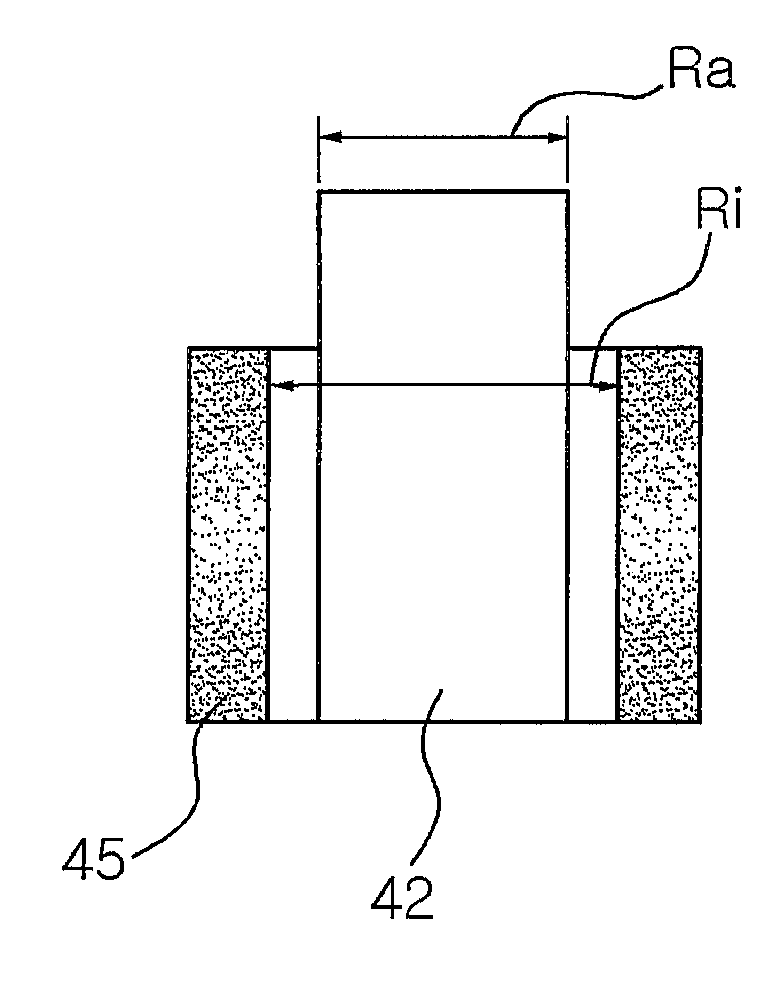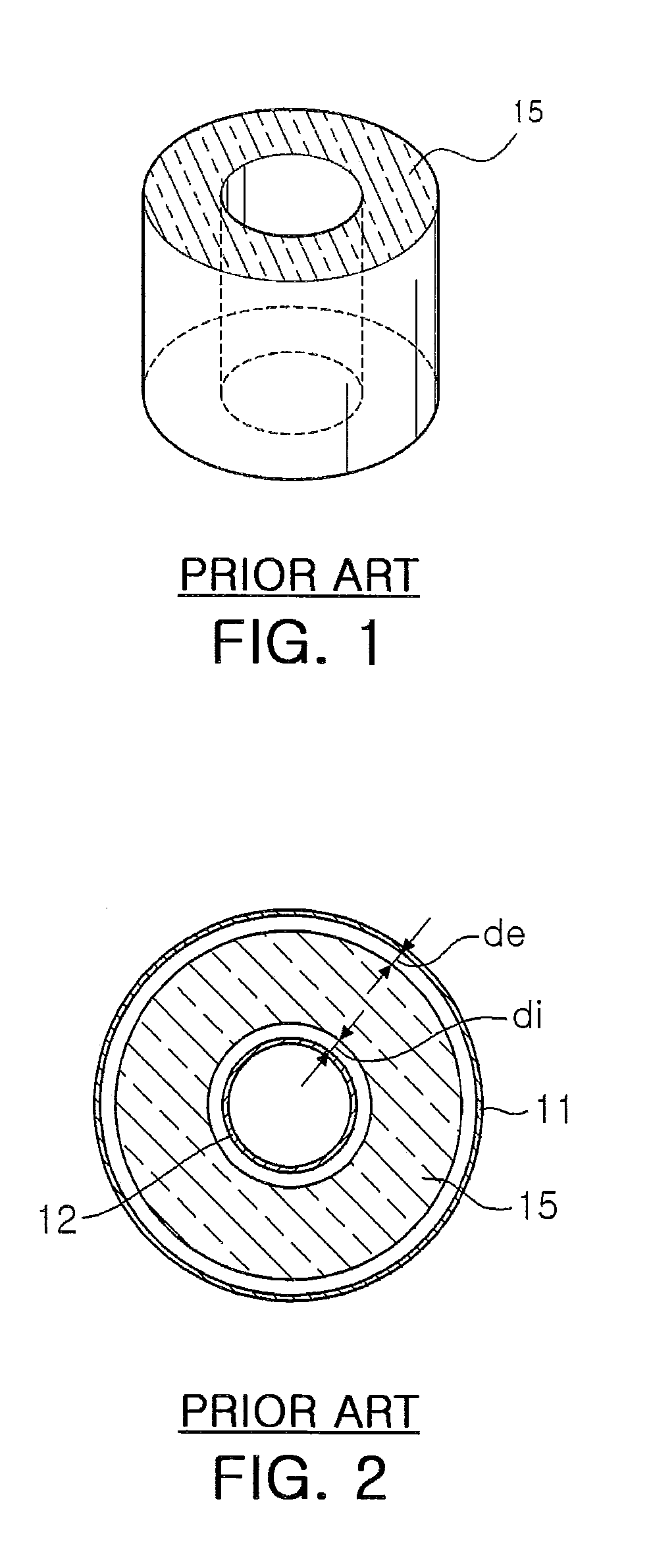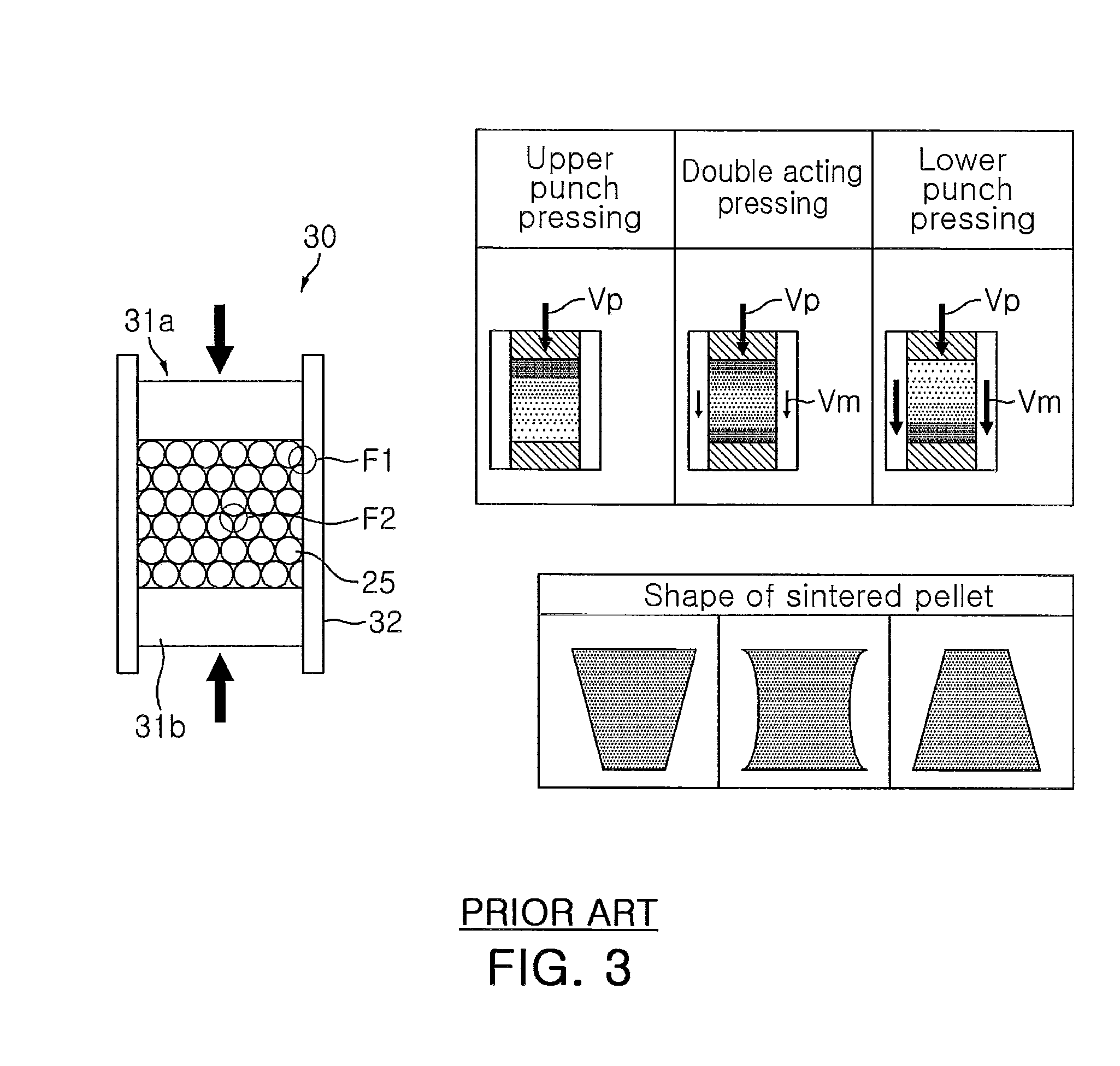Method for Fabricating Sintered Annular Nuclear Fuel Pellet Through Rod-Inserted Sintering
a technology of nuclear fuel pellet and sintering, which is applied in the direction of manufacturing tools, nuclear elements, greenhouse gas reduction, etc., can solve the problems of affecting the performance of commercial nuclear fuel rods in terms of temperature and heat flux, and affecting the safety of the nuclear fuel rod
- Summary
- Abstract
- Description
- Claims
- Application Information
AI Technical Summary
Benefits of technology
Problems solved by technology
Method used
Image
Examples
embodiment
[0073]IDR-UO2 powder was preliminarily formed with a pressure of 0.1 ton / cm2 into a mass, and the mass was crushed and allowed to pass through a 50-mesh sieve to fabricate granules. 0.3 wt % of zinc state was added as a lubricant to the fabricated granules, which were then mixed in a tubular mixer for 30 minutes.
[0074]The thusly mixed granules were charged (i.e., loaded) in a double acting uniaxial press and pressed with a pressure of about 4 ton / cm2 to fabricate an annular green body. The inner and outer diameters of the annular green body were measured at intervals of 1 mm along the length of the green body by using a contact type three-dimensional measurement machine. The density of the annular green body was at a level of about 54 percent of the level of a theoretical density.
[0075]The annular green body with a UO2 rod having an outer diameter of 10.18 mm inserted therein was sintered in a hydrogen atmosphere for 12 hours at a temperature of 1,600 degrees Celsius. The density of...
PUM
| Property | Measurement | Unit |
|---|---|---|
| temperature | aaaaa | aaaaa |
| length | aaaaa | aaaaa |
| diameter | aaaaa | aaaaa |
Abstract
Description
Claims
Application Information
 Login to View More
Login to View More - R&D
- Intellectual Property
- Life Sciences
- Materials
- Tech Scout
- Unparalleled Data Quality
- Higher Quality Content
- 60% Fewer Hallucinations
Browse by: Latest US Patents, China's latest patents, Technical Efficacy Thesaurus, Application Domain, Technology Topic, Popular Technical Reports.
© 2025 PatSnap. All rights reserved.Legal|Privacy policy|Modern Slavery Act Transparency Statement|Sitemap|About US| Contact US: help@patsnap.com



